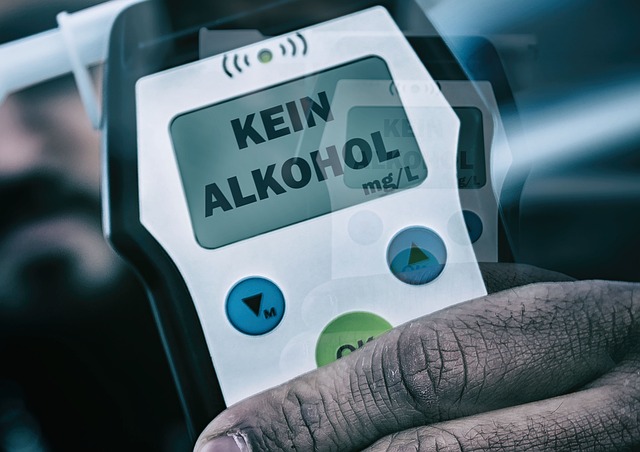Mental health significantly impacts driving behavior, with conditions like depression and anxiety impairing crucial cognitive functions for safe driving. Millennial DUI awareness campaigns have been effective in shedding light on this issue, encouraging young drivers to recognize their mental state's effects and promoting responsible practices. Targeted educational initiatives, leveraging social media platforms and community outreach programs, are vital to combat risky driving behaviors among Millennials. These campaigns aim to foster safer highways by raising awareness, providing resources for managing mental health, and reducing stigma, thereby encouraging individuals to seek help and make responsible decisions regarding their well-being and road safety.
Mental health significantly influences driving behavior, posing a growing concern among millennials, who face unique challenges behind the wheel. This article explores the impact of mental health on driving, focusing on Millennial DUI incidents and their underlying factors. We discuss effective communication strategies for raising awareness, propose comprehensive education programs tailored to young drivers, and provide guidance on supporting recovery and safe driving practices post-incidents. Key keywords: Millennial DUI Awareness Campaigns.
- Understanding the Impact of Mental Health on Driving Behavior
- Millennial DUI: A Growing Concern and Its Unique Challenges
- Effective Communication Strategies for Raising Awareness
- Designing Comprehensive Education Programs for Young Drivers
- Supporting Recovery and Safe Driving Practices Post-Incident
Understanding the Impact of Mental Health on Driving Behavior

Mental health plays a significant role in influencing driving behavior, and it’s crucial to understand this connection for safe roads. Studies show that individuals dealing with mental health issues, such as depression, anxiety, or psychosis, may exhibit impaired cognitive functions, including decision-making abilities and reaction times, which are critical behind the wheel. This can lead to increased risk-taking behaviors, delayed response to traffic signals, and difficulty maintaining focus while driving.
Millennial DUI (driving under the influence) awareness campaigns have been instrumental in shedding light on this issue. With mental health becoming a more open conversation, these initiatives aim to educate young drivers about recognizing their own mental state and its potential impact on driving. By raising awareness, we can encourage responsible driving practices and prompt individuals to seek help when needed, ultimately contributing to safer highways.
Millennial DUI: A Growing Concern and Its Unique Challenges

The issue of Millennial DUI (Driving Under the Influence) is a significant and growing concern in many parts of the world. This demographic, typically defined as individuals born between 1981 and 1996, faces unique challenges when it comes to responsible driving and alcohol consumption. Studies show that Millennials are more likely to engage in risky behaviors while driving, including texting, speeding, and drinking and driving. The rise of Millennial DUI can be attributed to various factors, such as social pressure, easy access to alcohol, and a lack of awareness about the dangers of impaired driving.
Addressing Millennial DUI requires targeted interventions and increased awareness campaigns. Educational initiatives that focus on the consequences of drunk driving and promote responsible drinking habits are crucial. Millennial DUI Awareness Campaigns can play a pivotal role in reaching this demographic through social media platforms, which are widely used by Millennials. By utilizing engaging content and peer-to-peer storytelling, these campaigns can effectively communicate the risks and encourage safer choices. Additionally, community outreach programs that engage young adults in conversations about mental health and its intersection with safe driving can help foster a culture of responsibility and wellness among Millennials on the roads.
Effective Communication Strategies for Raising Awareness

Effective communication is key when it comes to raising awareness about mental health and driving safety, especially within targeted demographics like millennials. Engaging Millennial DUI Awareness Campaigns can utilize creative strategies to capture attention and convey important messages. Social media platforms, for instance, offer opportunities to connect with younger audiences through relatable content, such as personal stories and interactive videos that highlight the risks of impaired driving when mental health issues are left unaddressed.
These campaigns should emphasize open dialogue and provide accessible resources for recognizing and managing mental health challenges. By promoting understanding and reducing stigma, they can encourage individuals to seek help and make informed decisions regarding their well-being and safety on the roads.
Designing Comprehensive Education Programs for Young Drivers

Mental health plays a pivotal role in ensuring safe driving, especially among young drivers. Comprehensive education programs are crucial to empowering this demographic with the knowledge and skills to navigate the road responsibly. These initiatives should delve into topics like stress management, recognizing emotional triggers, and coping strategies, as mental wellness can significantly impact reaction times and decision-making. By integrating these aspects into driver’s education, we aim to reduce risks on the road, targeting the rising rates of Millennial DUI incidents.
Effective programs can utilize engaging formats such as interactive workshops, peer discussions, and virtual simulations to capture attention and foster understanding. Equipping young drivers with tools to manage their mental health proactively can lead to better judgment and safer driving behaviors. Furthermore, Millennial DUI Awareness Campaigns can benefit from these educational platforms, emphasizing the importance of responsible driving while promoting open conversations about mental health challenges among the younger generation.
Supporting Recovery and Safe Driving Practices Post-Incident

After a traumatic event like a DUI (driving under the influence), recovery is a critical phase, and it’s essential to weave safe driving practices into this process. Millennial DUI awareness campaigns play a pivotal role here by offering support systems and educational resources tailored for younger drivers. These campaigns often focus on fostering open conversations about mental health, reducing stigma, and promoting early intervention. By integrating safety measures into recovery plans, individuals can rebuild their relationship with driving responsibly.
Professional guidance and peer support groups become invaluable assets during this journey. They help individuals navigate the emotional challenges that may arise while resuming driving duties. Millennial-focused initiatives often utilize digital platforms to share real-life stories, providing a sense of community and encouraging peers to stick to safe driving habits post-incident.
Mental health issues can significantly impact driving safety, as evidenced by the rising rates of Millennial DUI. To address this growing concern, targeted awareness campaigns, comprehensive education programs for young drivers, and supportive recovery initiatives post-incidents are crucial. Effective communication strategies, such as engaging social media content and interactive workshops, can raise mental health literacy among peers and foster a culture of responsible driving. By integrating these approaches, we can create a safer driving environment for all while supporting those facing mental health challenges. Implementing Millennial DUI Awareness Campaigns that prioritize mental well-being is an essential step towards revolutionizing driving safety.






